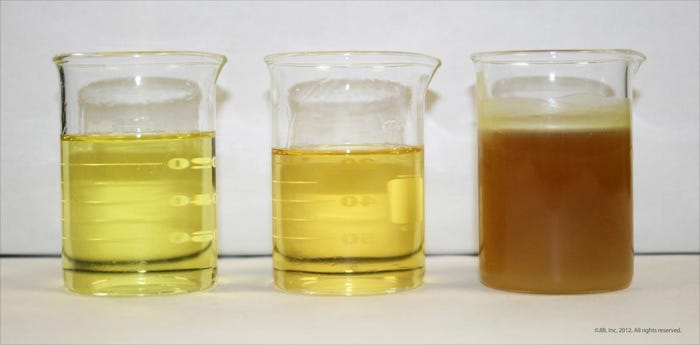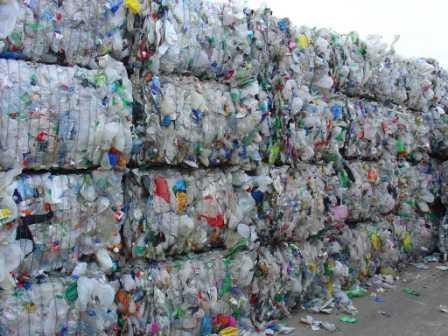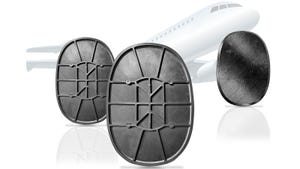Plastic waste into fuel: a new form of recycling?
A few startups believe the answer to both the world's waste issues and oil concerns can be solved with plastic. Plastic waste, that is. "There's no lack of plastic waste," John Bordynuik, CEO and president of JBI inc. told PlasticsToday. "It seems to increase every day." And only about 7% of plastic waste in the U.S. is recycled each year, according to the Environmental Protection Agency.Companies like JBI Inc. hope to increase that number by converting plastic waste into fuel.
April 24, 2012
A few startups believe the answer to both the world's waste issues and oil concerns can be solved with plastic. Plastic waste, that is. "There's no lack of plastic waste," John Bordynuik, CEO and president of JBI inc. told PlasticsToday. "It seems to increase every day." And only about 7% of plastic waste in the U.S. is recycled each year, according to the Environmental Protection Agency.
Companies like JBI Inc. hope to increase that number by converting plastic waste into fuel.
 JBI transforms unsorted, unwashed plastic waste into sulphur fuel without the need for refinement. The company's patent pending Plastic2Oil (P2O) process is a commercially viable, proprietary process designed to help solve some of the country's plastic waste recycling challenges.
JBI transforms unsorted, unwashed plastic waste into sulphur fuel without the need for refinement. The company's patent pending Plastic2Oil (P2O) process is a commercially viable, proprietary process designed to help solve some of the country's plastic waste recycling challenges.
The P2O process accepts a wide range of difficult-to-recycle, unwashed, unsorted, mixed plastic waste that isn't normally accepted into a recycler.
"We actually take the worst of the worst when it comes to unrecyclable, unwashed plastics," Bordynuik said. "It doesn't matter whether it has dirt or food residue on it."
Thousands of pounds of water bottles, bags, and other plastic packaging go into a processor, where they're melted together and then vaporized and formed into fuel. This waste comes from landfills across the U.S.
JBI processors are permitted to operate at 4000 lb/hr, however, they are currently operating at 2000 lb/hr. The company expects to operate both processors at 4000 lb/hr, once it receives approval on its amended Solid Waste Permit from the New York Department of Environmental Conservation.
By effectively doubling the plastic feedstock throughput from 2000 lb/hr per processor to 4000 lb/hr, the company should double the amount of fuel output each P2O processor can produce, he said.
"We believe this sets us apart from other plastic into fuel conversion technologies," Bordynuik said. "JBI Inc. is the first company to successfully move from a pilot plant to a multiple processor, full production plant within the industry."
Still, it hasn't been a smooth ride for the company. Earlier this year, JBI was accused by the Securities and Exchange Commission of misrepresentation of the actual value of JBI's assets in order to raise more funds.
The company said in a statement that it, "looks forward to vigorously defending itself in court, where the company believes it will prevail on the merits. The allegations in the complaint concern legacy accounting issues that have since been corrected."
New study: environmental and economic analysis of emerging plastics conversion technologies
The American Chemistry Council (ACC) recently released a study that stated emerging new technologies designed to convert waste into fuels or raw materials can offer environmental benefits and cost savings over landfill disposal.
The study, sponsored by ACC's plastics division and conducted by RTI International, examined two types of advanced conversion technologies: gasification and pyrolysis. The study looked at gasification technology that accepts all municipal solid waste (MSW), including non-recycled plastics, and pyrolysis that handles non-recycled plastics only.
When compared to landfill disposal, RTI found that gasification of MSW saves 6.5 to 13 million Btu per ton and 0.3 to 0.6 tons of carbon equivalent emissions per ton. Similarly, pyrolysis, which converts plastics to oil or gas, saves 1.8 to 3.6 million Btu per ton and 0.15 to 0.25 tons of carbon equivalent per ton over landfill disposal.
"This study is the latest in a growing body of information showing that many of the things we've viewed as waste actually have tremendous potential as energy resources," said Steve Russell, vp of plastics for ACC. "As a complement to a robust recycling infrastructure, conversion technologies offer environmental benefits and cost savings over traditional waste disposal processes."
In the study, RTI reported having identified 41 advanced conversion technology facilities that are under development or undergoing demonstration in North America that that will accept MSW or non-recycled plastics as feedstocks. These waste conversion technologies are expected to become much more attractive in North America in the next five to ten years, according to the ACC.
Recycling of mixed dirty plastic and rubber waste
Polyflow is another waste-to-energy company with a distinct set of goals: to reduce the country's dependence on foreign  crude oil, the diversion of plastic and rubber waste from landfills, and the creation of jobs in the emerging waste-to-energy field.
crude oil, the diversion of plastic and rubber waste from landfills, and the creation of jobs in the emerging waste-to-energy field.
Polyflow utilizes a patented process that converts hard-to-recycle plastic and rubber waste into transportation fuel and aromatics, the building blocks of polymer and rubber manufacturing.
The technology accepts all types of mixed and contaminated polymer and rubber waste with emphasis on plastic types 3-7, tires, and carpet.
"At Polyflow, we believe our energy recovery technology is a legitimate game-changer in this era of rising energy prices and reduced landfill capacity," said Polyflow CEO Jay Schabel. "Our process provides an end-of-life solution."
Polyflow's initial facility utilizing a patented waste-to-energy conversion process is scheduled to come online later this year in northeast Ohio.
About the Author(s)
You May Also Like


